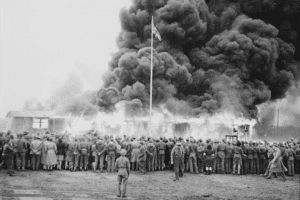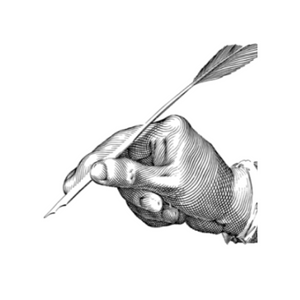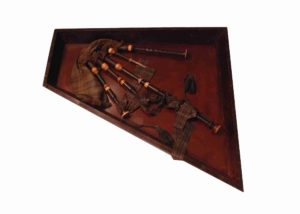
A Charred Memory: A Fragment of Bergen-Belsen at The Black Watch Museum
As the Collections Assistant at The Black Watch Museum, I spend my days surrounded by conflict-related artefacts such as medals, uniforms, letters, and photographs that
Home » Blog » Black Watch History » The Inspiring Story of Private Ron Wheeldon: A Black Watch POW in WWII


This blog was written by Freya, one of our three young volunteers who contributed to our special exhibition, ‘Captive Voices’. Freya will be attending university this autumn to study History.
Private Ronald ‘Ron’ Wheeldon was born on 24th June 1926 in Mosborough, Sheffield. Coming from a mining family, Wheeldon chose a different path, finding work at Glovers flour mill after leaving school at the age of 14. In 1943, despite being only 17, he enlisted in the British Army, lying about his age to join the war effort alongside his friends from Mosborough.
Wheeldon was sent to Scotland where he joined The Black Watch regiment and received training alongside the regiment before being deployed to Italy, where he participated in the Battle of Anzio. Unfortunately, less than a year into his service, Wheeldon was captured by the German Army on 22nd January 1944 after attempting to evade capture by hiding out in a pigsty.

Initially held at Stalag IV-B, Wheeldon was later transferred to Stalag 18-A in October 1944 for unknown reasons. In letters sent home from the camps to his mother and younger brother, Wheeldon described parcels the prisoners had received from the Red Cross which contained good food that helped supplement the poor rations they received from the camp kitchens. Despite these extra provisions, Wheeldon and his fellow prisoners often went hungry, resorting to eating small animals out of desperation.
Despite the lack of appropriate food and clothing and other poor conditions in the camps, Wheeldon was able to keep his light hearted and positive personality. In a 2019 biography written by Wheeldon’s daughter after his death, she describes some of the experiences Wheeldon had while a prisoner, noting that ‘life as a POW did not seem to phase him – he was optimistic’. Wheeldon was often the organiser of practical jokes within the camp, such as dismantling a bike belonging to the German camp commandant, which resulted in him falling in front of the camp residents. This significantly boosted the morale of the prisoners for weeks.

As well as pulling jokes, Wheeldon was a keen escapee, and managed to escape the camps a total of three times; all attempts were unsuccessful, with him being recaptured once and surrendering twice.
After the end of the war in 1945 Wheeldon was liberated, however in very poor physical health after suffering Malaria and extreme malnutrition.
Following his recovery, he returned home and was awarded the Italy Star and the 1939-1945 British War medal for his service during the war.
Ron Wheeldon passed away in 2017 at the age of 91, and was said by his daughter to have been proud of his service in The Black Watch until the end of his life.
For more stories like Ron Wheeldon’s, you can visit our special exhibition, ‘Captive Voices’, which delves into the personal experiences of prisoners of war during WWII. The exhibition features first-hand accounts, letters, and artefacts, offering a poignant insight into the resilience and courage of those who endured captivity. Discover more about the remarkable individuals who served in The Black Watch and the challenges they faced during the war.

As the Collections Assistant at The Black Watch Museum, I spend my days surrounded by conflict-related artefacts such as medals, uniforms, letters, and photographs that
Just before heading up the stairs to Gallery 4 visitors will see the painting of someone who, on first glance, might not look like a

Rosie Waine is the William Grant Foundation Research Fellow at the National Museum of Scotland. Here she writes how the Black Watch Museum & Castle
Subscribe to Our Newsletter
© The Black Watch Castle and Museum
The Black Watch Regimental Trust is a charitable company registered in Scotland | Charity No: SC005848

1 thought on “The Inspiring Story of Private Ron Wheeldon: A Black Watch POW in WWII”
Fantastic story
Love reading about THE BLACK WATCH
As a young boy was with the 2nd Battalion in Palestine with my Dad, then Sgt Maurice Hume ,MM together with my Mum and two sisters , Talavera Barracks